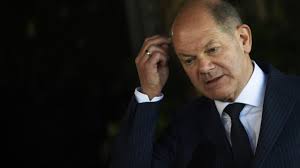
ANKARA, June 9 (NNN-AGENCIES) — Turkiye’s foreign minister has said a United Nations plan to restart Ukrainian grain exports along a sea corridor was “reasonable” during talks with his Russian counterpart in Ankara.
“Various ideas have been put out for the export of Ukrainian grains to the market, most recently is the UN plan [including] a mechanism that can be created between the UN, Ukraine, Russia, and Turkiye,” Turkiye’s Mevlut Cavusoglu said on Wednesday, speaking alongside Russia’s Sergey Lavrov.
The UN-led mechanism aimed at establishing a secure corridor for the shipment of an estimated 22 million tonnes of grain sitting in silos in Ukraine through the Black Sea and could involve a Turkish naval escort for tankers leaving Odesa and other Ukrainian ports currently blockaded by Russia’s navy.
“We see it as reasonable,” he added. “Of course, both Ukraine and Russia must accept it.”
Russia’s invasion of Ukraine in February halted Kyiv’s Black Sea grain exports, threatening a global food crisis. The UN appealed to the two sides, as well as maritime neighbor and NATO member Turkiye, to agree to a solution.
Ankara, which has good relations with both Kyiv and Moscow and had previously said it was ready to take on a role within an “observation mechanism,” also backed Russia’s request for an end to sanctions to help grain onto the world market.
“If we need to open up the international market to Ukrainian grain, we see the removal of obstacles standing in the way of Russia’s exports as a legitimate demand,” Cavusoglu said.
Meanwhile, Turkiye was planning to host an upcoming encounter in Istanbul that Ukrainian officials will be invited to attend.
Speaking at a press conference alongside Cavusoglu on Wednesday, Russia’s Lavrov appeared favorable to a deal on grain exports but said Ukraine needed to let merchant’s vessels leave its ports safely in order to reach an agreement on the commodities corridor.
He added that the onus of de-mining ports prior to resuming grain shipments fell on Kyiv and blamed Ukrainian President Volodymyr Zelenskyy for “categorically” refusing to resolve the problem.
Lavrov also said that Moscow would not use grain shipments in and around the Black Sea to advance what it calls its “special military operation.”
“These are guarantees from the president of Russia,” he said.
Ukraine said on Wednesday it would not de-mine waters around the Black Sea port of Odesa to allow for grain to be exported, citing the threat of Russian attacks on the city.
“The moment we clear access to the port of Odesa, the Russian fleet will be there,” a spokesman for the regional administration Serhiy Bratchuk said in a video statement on social media.
The meeting between Cavusoglu and Lavrov came as Turkiye voiced opposition to Sweden and Finland’s bids to join NATO. Moscow has also objected to the Nordic countries’ candidacy which analysts say may play a role in discussions concerning Syria.
Ankara has maintained its close ties to both Ukraine and Russia. It has criticized Russia’s invasion of Ukraine but has not joined international sanctions against Moscow.
Lavrov arrived in Turkiye days after NATO members Bulgaria, North Macedonia and Montenegro reportedly refused to allow his plane to fly through their airspace to reach Serbia. Lavrov’s plane was able to fly directly to Turkiye over the Black Sea.
Talks were also expected to focus on Turkiye’s plans to launch a new cross-border offensive in northern Syria against the Syrian Kurdish militia that Ankara considers to be a security threat.
Turkiye needs Moscow’s approval to continue its presence in northern Syria, despite the two supporting opposite sides in Syria’s civil war. In 2020, 37 Turkish soldiers were killed in Russia-backed air strikes against rebels in Syria’s last rebel-held Idlib province. — NNN-AGENCIES





